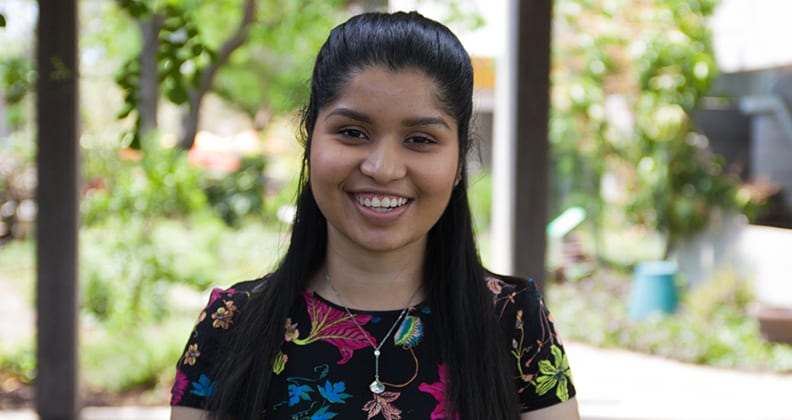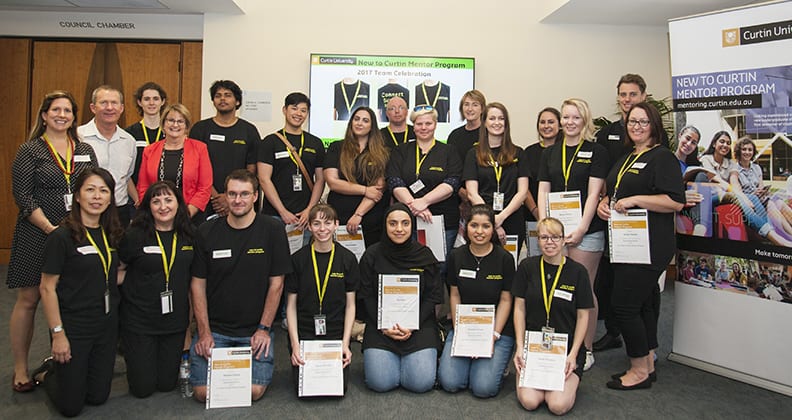Studying at university is an exciting and transformative time. It’s a chance to gain independence, make new friends and discover new ideas. University can also be a big adjustment for some students, particularly those who have moved away from home to study, are the first person in their family to attend university, or haven’t undertaken study for some time.
The New to Curtin Mentor program aids in the transition and retention of new Curtin students by teaming them up with more experienced, trained students in the same field of study over their first semester at Curtin.
“The fundamental goal of the mentor program is to engage senior students to assist new students to successfully make the transition to university as early as possible in their university career,” says Roselynn Lang, Manager of Curtin Peer Learning and Support.
“They provide a welcome at Orientation Week, act as a positive role model, are available as a person to contact for support and advice and generally enhance the experience of the new student.”
Since the program began in 2008, over 5,400 students have been trained as mentors, and have assisted more than 90,000 new students.
Senaida D’Souza is a psychology student who joined the mentor program in 2016 after her own positive experience as a mentee.
“My mentor was very on top of things and always willing to help whenever I had questions,” says D’Souza. “He helped me to register for classes and enrol in units, which I initially found quite difficult.
“I had such a good experience with the program that I wanted to pass that on.”

D’Souza says one the highlights of being a mentor was knowing she was able to provide personal help to individual students.
“I had a psychology mentee who failed a unit, so we met up on campus every week and talked about where they felt they needed to improve, not necessarily course content, but how to prioritise tasks and their study and assignment schedules,” says D’Souza. “They got a lot out of it and ended up doing very well in their grades.”
D’ Souza was recognised for her mentor role at a recent Say Thanks awards event, which celebrated the contribution of mentors to the Curtin community for 2017.
“The award took me by surprise, but it’s nice to be acknowledged for my work,” says D’Souza.
“We don’t always get responses from our mentees, so it’s nice to hear them say they appreciate us getting in touch.”
Curtin Deputy Vice Chancellor Professor Jill Downie attended the awards, and said it was a personal highlight to witness the program’s success and congratulated the hard work of all the winners.
“The mentors provide an invaluable service to the Curtin community. The program is about connecting, inspiring and supporting our new students,” says Professor Downie.
“The program is a really high-quality student leadership development program for mentors, and really enhances their employability skills. From this wonderful experience, I’m hoping they’ve gained some additional skills that they will be able to take into the workforce.”
D’Souza says students have nothing to lose from being a part of the program, whether as a mentee or mentor.
“The more you put into the program, the more you will get out of it. It helped me to really get involved in uni life.”
If you’re looking for a mentor, or would like to become a mentor, visit Curtin Life.



